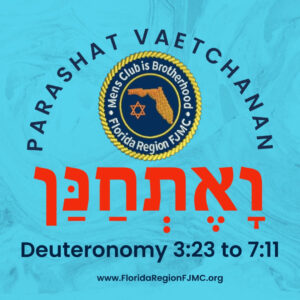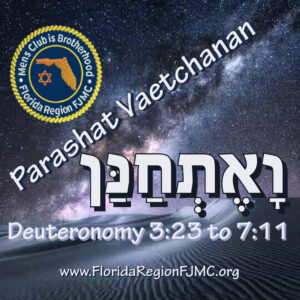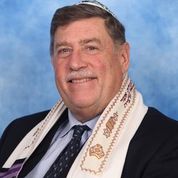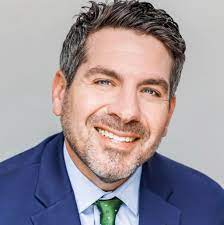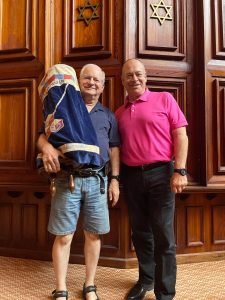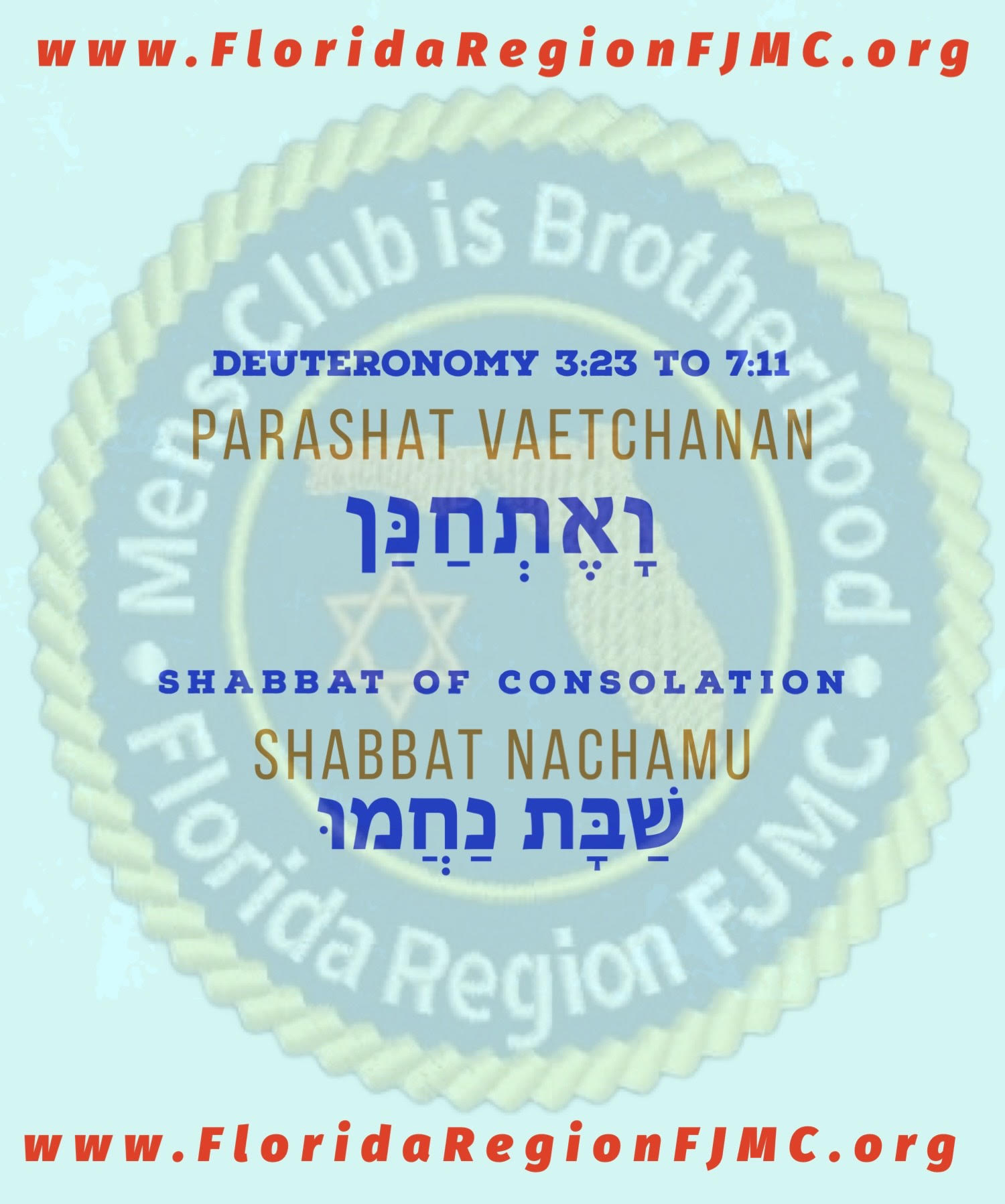
When you Choose Shabbat, you choose to learn that every Shabbat is different and special and this week is no exception. This week read from Parashat Vaetchanan (וָאֶתְחַנַּן), the 45th weekly Torah portion in the annual cycle of Torah readings, as well as Shabbat Nachamu (שבת חזון), “the Shabbat of Comforting”, taking its name from a haftarah from the Book of Isaiah (40:1 through 40:26) that speaks of “comforting” the Jewish people for their suffering. It is first of seven haftarahs of consolation that are read between Tisha B’Av and Rosh Hashanah.
According to Wikipedia, Vaetchanan (וָאֶתְחַנַּן), Deuteronomy 3:23 through 7:11, contains 7,343 Hebrew letters, 1,878 words, 122 verses and makes up 249 lines of the Torah scroll. Vaetchanan covers a lot of territory; it tell how Moses asked to see the Land of Israel and recounts setting up the Cities of Refuge; Moses also recites the Ten Commandments and the Shema and gives instructions to the Israelites.
Rabbi Michael D Klein of Temple Torat Emet offers his insights on this week’s Torah reading, Vaetchanan for Shabbat August 9, 2025 aka 15 Av 5785:
“This Shabbat, known as the Sabbat of Comfort, is the first of seven Shabbatot after Tisha B’Av with prophetic messages of comfort until Rosh Hashanah. The Sedra, Vaetchanan, contains both the restatement of the Ten Commandments and the Shema, the proclamation of our universal belief in one G-d and our statement of commitment to believe in G-d “when we lie down and when we rise up”.
Why did our Sages who codified the Tanach feel the necessity to include two such powerful statements into one Sedra? Perhaps, it is to teach us that just stating the Ten Commandments alone is not enough. The Shema teaches us that the 613 Commandments are more than pronouncements. The Shema and subsequent 3 paragraphs give us specific guidance as to how we must include every aspect of the Commandments into every waking hour of our lives. We carry them with us when we are in our homes or on a journey and we subsume these words into our hearts because they are more than an intellectual exercise. We must attach ourselves to G-d’s Laws through our emotion as well as our intellect.
Last Shabbat, we read that Moses, speaking as himself, felt it necessary to translate the Torah into 70 languages and share it with the nations of the world that existed at that time. Even though G-d gave the Torah to us, Moses understood that in order for the world to exist with justice, all the nations would have to receive and hopefully accept the Laws of G-d in their own language and within their own levels of understanding. This profound gift to the world, resonates with the hope that if all nations adopted the code of the Torah, there would be a world of kindness and peace and G-d’s sovereignty would predominate the entire world.
In order for this to occur, we must first take the lead as G-d’s Chosen People by living our lives according to the Torah code in order to be “OR LAGOYIM” – a light unto the nations. When we lead by example, other nations and individuals will be empowered to aspire to a world of justice and understanding and eventually result in G-d’s world being worth and equitable for all Creation. May this Shabbat of Comfort and the subsequent Shabbatot until Rosh Hashanah bring the light of acceptance and understanding to the world and comfort to those who are suffering.”
Questions for Discussion:
- What does the word Vaetchanan actually mean and imply about our method of approaching G-d?
- Why does the Shema contain the plural form of “your heart”?
- Why are Moshe and other great Tzaddikim buried outside of Israel?
- Why does Moses place such emphasis on the heart?
Rabbi Michael D. Klein attended Yeshiva College of South Florida and served as Torah Reader, Hebrew teacher, Chazzan and spiritual leader of various synagogues throughout South Florida. In January 2015 he became Ritual Director, Bnai/Bnot Mitzvah instructor and 7th grade Hebrew instructor for Temple Torat Emet of Boynton Beach. In October 2019 he was accepted into an accelerated track and received his smicha from Yeshiva Adath Wolkowisk and has been the Rabbinic leadership of Temple Torat Emet since August 2020. In September of 2022 he was appointed Rabbinic and Spiritual Advisor of the Florida Region of FJMC.
Choose Shabbat; choose to celebrate, to light candles, sing songs and learn a little Torah.
This moment of Jewish Learning is brought to you by the Florida Region of the FJMC International (FJMC). We are part of a confederation of over 200 Jewish Men’s Clubs and Brotherhoods representing nearly 20,000 members across the United States, Canada, Latin America, and beyond. Learn more about how your Jewish Men’s Club or Brotherhood can affiliate with the FJMC at: https://fjmc.org/for-clubs/affiliating-with-the-fjmc/.
The Florida Region of FJMC serves the needs of affiliated Men’s Clubs and Brotherhoods throughout the State of Florida. Get to know more about the FJMC Florida Region and our growing network of Jewish Men’s Clubs and Brotherhoods at www.floridaregionfjmc.org and please visit and LIKE our Florida Region FJMC Facebook Group at www.facebook.com/FloridaRegionFJMC.
